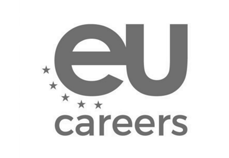Unconscious Bias

- Online
- In Person
Acquired skills
What skills the participant will get?
- Notice our blind sports regarding our biases - Be aware of visible and invisible identities
- Understand what unconscious bias is and how it influences our actions
- Determine what otherness means and what respect for diversity is
- Recognise our habits and reflexes in explicit/implicit bias situations
- Provide tools to look at and adjust our automatic patterns of thinking
- Identify most common biases in my institution/company
- Move towards dismantling discriminatory behaviours at work
Format
-
All staff
-
Managers
-
1/2 Day
-
Online Training
-
Embodiment
-
Group Dialogue
-
Learning by doing
-
Presentation
-
Role Play
-
Study Cases
-
Theory
Context and content
The main support it brings, the issue it tackles.
Unconscious biases are learned stereotypes that are automatic, unintentional, deeply engrained, universal, and able to influence behavior. They can have strong consequences on an environment like unequal treatment and unfair situations.
There is numerous scientific evidence that shows that unconscious bias may influence various elements like the evaluation and selection of applicants from entry-level to management positions in all types of organizations.
This ‘Unconscious bias’ training programme is designed to expose participants to their unconscious biases, provide tools to adjust automatic patterns of thinking, and ultimately help eliminate discriminatory behaviours.
In the workplace, unconscious bias may have an impact on our balance, the quality of our relationship with others, effectiveness of the work.
Delivery of the training takes place through an online platform. This includes individual, sub-group and plenary activities using a chat box, break-out rooms and whiteboard functions. The trainer hosts the session, guides the activities and leads the debriefing sessions.
Possible adaptations
Any tailor made request will be evaluated with you and our team.
additonal days
(1.5 h, 1/2 day, 1 day, 1.5 day or 3 days)pre and post seminar activities
(ebook, coaching, handbook)specific audience needs
(staff, managers, stagiaires, assistant, etc.)Our Foundations
Every training can be delivered with combinations of these features.
Contracts
This learning solution is compliant with the following frameworks



Recommended for you
Learn more about the related training courses delivered.
Acquired skills
What skills the participant will get?
- Determine what otherness means and what respect for diversity is
- Be aware of visible and invisible identities
- Identify most common biases in the European Institutions
- Understand what unconscious bias is and how it influences our actions
- Provide tools to look at and adjust our automatic patterns of thinking
- Move towards dismantling discriminatory behaviours at work
Format
-
All staff
-
Managers
-
1 Day
-
1.5 Day
-
In-person Training
-
Group Dialogue
-
Learning by doing
-
Presentation
-
Role Play
-
Study Cases
-
Theory
Context and content
The main support it brings, the issue it tackles.
Unconscious biases are learned stereotypes that are automatic, unintentional, deeply engrained, universal, and able to influence behavior. They can have strong consequences on an environment like unequal treatment and unfair situations.
There is numerous scientific evidence that shows that unconscious bias may influence various elements like the evaluation and selection of applicants from entry-level to management positions in all types of organizations.
This ‘Unconscious bias’ training programme is designed to expose participants to their unconscious biases, provide tools to adjust automatic patterns of thinking, and ultimately help eliminate discriminatory behaviours.
In the workplace, unconscious bias may have an impact on our balance, the quality of our relationship with others, effectiveness of the work.
Possible adaptations
Any tailor made request will be evaluated with you and our team.
additonal days
(1.5 h, 1/2 day, 1 day, 1.5 day or 3 days)pre and post seminar activities
(ebook, coaching, handbook)specific audience needs
(staff, managers, stagiaires, assistant, etc.)Our Foundations
Every training can be delivered with combinations of these features.
Contracts
This learning solution is compliant with the following frameworks





